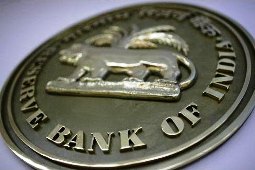 Reserve Bank of India Governor D Subbarao on Sunday outlined for the central bank a comprehensive communication strategy aimed at achieving clarity, effectiveness, honesty and consistency.
Reserve Bank of India Governor D Subbarao on Sunday outlined for the central bank a comprehensive communication strategy aimed at achieving clarity, effectiveness, honesty and consistency."Open and transparent communication enhances policy effectiveness," Subbarao said, adding that frequent announcements on the monetary policy stance prevented surprise to the markets and allowed RBI to get feedback from market players and the media.
Subbarao was delivering the second Business Standard Lecture in New Delhi, immediately after releasing Business Standard India 2011, the fourth volume of the annual India series published by BS Books, a division of Business Standard Limited.
The first BS Lecture was delivered by noted economist Jagadish Bhagawati last year.
In his hour-long lecture, Subbarao outlined 10 dilemmas in central bank communication.
Barring two, all of these underlined the need for careful thinking while deciding how the central bank should transparently communicate its policy stance to the markets.
One of the two dilemmas which raised doubts about the need for a completely transparent communication policy pertained to sharing of security features in currency notes with the people.
The other one pertained to disclosing the composition of the central bank's foreign exchange reserves, as he said such information was market-sensitive, could affect the country's international relations, while holding back the information would not erode market efficiency.
Subbarao noted that the negative feedback of the market on 'off-cycle' policy adjustments after the financial crisis of 2008 prompted RBI to revise its communication strategy.
In September 2010, RBI introduced more structured and scheduled mid-quarter reviews, but did not surrender its flexibility to take policy action as and when warranted, Subbrao said.
Earlier, the Reserve Bank used to have three quarterly and one annual review of the monetary policy in a year.
Since September, it has also been conducting mid-quarter reviews.
The next review of the monetary policy is due on January 25 and industry and experts are expecting an increase in policy rates.
Over the last two decades, he said, RBI had moved towards clearer communication and greater transparency to enhance
"In recent decades, central bankers have been increasingly persuaded that even in times of stress, they are better off communicating rather than not communicating.
"The recent crisis reinforced this growing faith in communication as central bankers realised, much to their relief, that keeping the public informed and updated actually reduced rather than exacerbated anxiety and panic," he said.
Citing an example of greater transparency in the communication strategy of central banks the world over, he said prior to 1994, the US Fed was not even announcing the target Fed Funds Rate, but these days it was standard practice for central banks to indicate policy rates, the rationale behind the policy action as well as the expected outcomes.
Often, the central bank gave forward guidance on policy actions, he added.
The central bank governor said giving guidance on monetary policy, the choice of words in the policy, communicating uncertainty, disclosing inflation expectations, guidelines for new bank licences, getting the message across on Basel-III norms, treatment of systematically important financial institutions, security features of currency notes and disclosing the composition of foreign exchange reserves were among the areas where RBI faced communication dilemma.
In response to a question from a government official on insuring bank deposits, he said banks were already insuring up to a certain amount, but the Reserve Bank would try to be more communicative on that.
He added RBI did not come out with any communication in this regard during the financial crisis as it could have caused panic by sending a wrong signal to the people.
Subbarao concluded by saying that communication at RBI was not just a matter of openness and transparency but also of education, guidance, persuasion and dialogue, besides listening and learning.
The RBI governor appreciated the role of the media in analysing the central bank's policy announcements, but expressed hope that it would be more responsible in its assesments and opinions.












 © 2025
© 2025